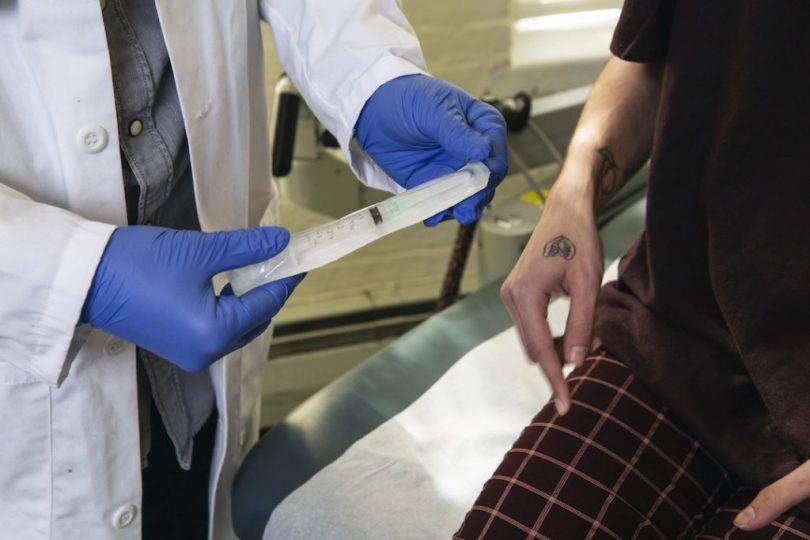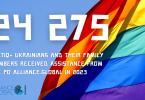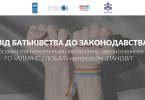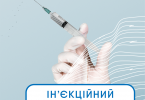Mohan Sundararaj MBBS MPH, Director of Public Health Programs, MPact
The respiratory illness caused by a novel coronavirus (COVID-19) is now a pandemic that is changing our world. Although the infection in most cases is self-limiting, a number of individuals including those with underlying health conditions, could potentially develop serious complications. The rapid rise in incidences, ease of transmission (e.g. through direct contact, coughing and/or sneezing) and slow large-scale availability of affordable testing services have fueled a sense of fear and stigma – issues that are only too familiar to LGBTI and HIV advocates . MPact is urging our partners to draw from our collective experience. Get informed, reach out for support and prioritize self- and community-care.
Consistent with guidelines from the World Health Organization (WHO) and the United States Centers for Disease Control and Prevention (CDC), we offer the following 10 tips:
1. Know Your Epidemic: Individuals who are over the age of 50, immunocompromised or have pre-existing conditions (e.g. heart or lung disease, diabetes) may potentially be more vulnerable to complications from the disease. Get up-to-date, accurate information from reliable sources about the COVID-19 virus, how it spreads and where you can get necessary health services. Be wary of misinformation regarding the COVID-19 virus on social media and Whatsapp. Check the following websites regularly as information is being updated on a daily basis:
World Health Organization COVID-19 Advice
World Health Organization COVID-19 Rolling Updates
US Centers for Disease Control and Prevention Guidance
TheBody.com on HIV and COVID-19
National LGBT Cancer Network Guidance on COVID-19
Harm Reduction Coalition on Drug Use and COVID-19
2.Protect Yourself: Currently, a vaccine is being tested to prevent COVID-19 but may be many months away. To reduce the risk for transmission, the US CDC recommends frequent hand washing with soap and water for at least 20 seconds and using a hand sanitizer with at least 60% alcohol when hand washing is not possible. It also recommends avoiding touching your eyes, nose and mouth and wearing a mask if you’re sick. If you or someone you know is living with HIV, aiming to achieve an undetectable viral load and an excellent CD4 count will help your immune system. If you’re a healthcare provider, click here for some additional precautions you could take.
3.Look Out For Your Family and Your Community: Even if you feel well, you may unintentionally pass the virus to someone who may have a harder time coping with the illness. Many lesbian, gay, bisexual, transgender, and intersex (LGBTI) people including LGBTI people who use drugs, and LGBTI sex workers have limited access to shelter, food and other basic needs. Lend a helping hand and find ways to be supportive. Keep an eye out for our elders and people with underlying conditions.
4.Re-Imagine Close Contact and Travel: Social distancing or quarantining appears to slow down the spread of COVID-19 in communities affected by it. If your country has reported any COVID-19 cases, you should consider canceling non-essential travel and res-scheduling meetings, trainings, workshops. Hold meetings via Zoom, Skype or other internet-based technologies. For other types of contact, including sexual contact and drug use, use common sense and harm-reduction approaches to protect yourself and your partners. Read this guide on sex in the age of COVID-19 from the New York City Health Department.
5.Safeguard Your Mental Health: Social distancing and quarantining have the potential to negatively impact individuals’ mental health, especially among LGBTI people, LGBTI people who use drugs, and LGBTI sex workers who already experience marginalization and ostracization. Take the necessary steps to protect your mental health by reaching out to your friends and family. Lean into your local community through phone, social media and other platforms.
6.Be Prepared: Depending on where you live, you may need to stock-up on your ARVs, PrEP, and food to be better prepared if there are newly introduced community-wide and country-wide policies restricting travel and movement. Speak to your healthcare provider or pharmacist about getting a 90-day supply of your HIV-related medications.
7.Watch for Symptoms: According to the CDC, fever, cough and shortness of breath can develop 2-14 days after exposure to COVID-19. However, having these symptoms does NOT automatically mean you have the COVID-19 virus. Err on the side of caution and consult a healthcare provider, in case you need to get tested and/or be quarantined.
8.Get Tested: If you suspect you may be infected with COVID-19, ask your healthcare provider or local health authorities where you can get a test. If access to testing is limited or unavailable, advocate for its access with locally elected officials and your government.
9.Fight Stigma: Like stigma associated with HIV, COVID-19-related stigma can be a problem. We should adamantly fight stigma in all its forms with information and education.
10.Stay Proactive, Don’t Panic!: The newness and rapid spread of COVID-19 can be scary and overwhelming. While it is important that we remain proactive, we need to take great care not to sensationalize the issue or to play into panic. Let’s draw from our many strengths and experiences as we fight this epidemic together as a global community.
As countries adopt local plans and take measures to contain the spread of COVID-19, MPact will remain open and operate virtually. MPact-led trainings and workshops have either been canceled or rescheduled until further notice. However, we will continue to act as a resource for our partners and advocates worldwide. If you have any questions or concerns, please reach out as necessary.
In Solidarity,
The MPact Team
Source: https://mpactglobal.org/covid-19-10-tips-for-lgbti-advocates-worldwide/






